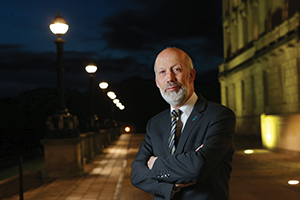Asset Recovery Scheme to benefit 24 community projects

Justice Minister David Ford MLA has allocated over £325,000 to 24 projects aimed at tackling crime and the fear of crime. The funding has helped projects like those aimed at tackling the increased problem of cyber bullying and online criminal offences such as grooming.
Other types of projects that have benefitted from the funding include projects promoting alcohol awareness, personal safety and those providing early intervention and diversionary activities for young people. There are also schemes helping to make older people feel safer in their homes. Each has the common aim of making Northern Ireland a safer place.
Speaking about the funding Justice Minister David Ford, claimed that since the beginning of the Asset Recovery Community Scheme, over £3 million has gone to a wide range of projects across Northern Ireland. This money, which has been taken out of the hands of criminals and returned to the community will, the Minister feels, make a real difference in supporting those who want to “do good for the community instead of inflicting harm and fear.”





